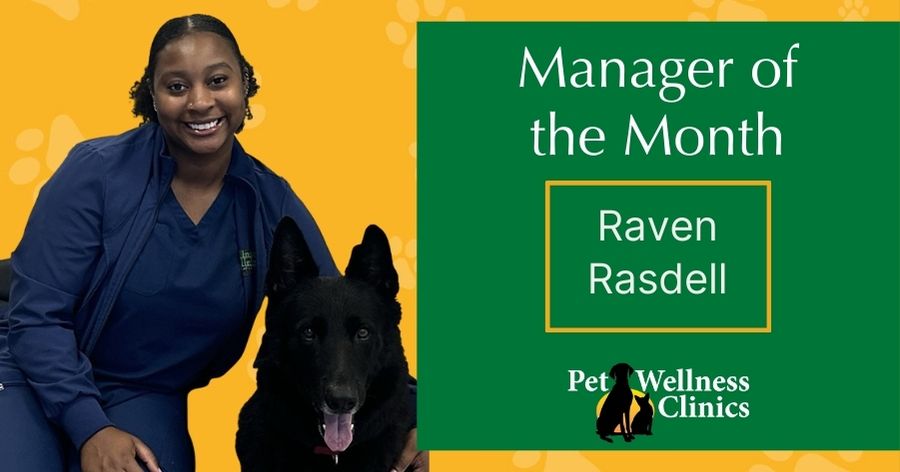Like humans, most dogs will develop a cough at some point during their lifetime. While in many cases it may be a symptom of a simple, mild virus that will run its course quite quickly, there are occasions where a cough may be indicative of a more worrying health problem that requires veterinary assistance.
Types of canine cough and what you should do
There are many different types of canine cough, some more serious than others. The variety of cough that your dog has will determine what you can do to help him, and what professional treatment might be required. Here are some of the most common reasons why your dog may be coughing.
Seasonal cough in dogs
If your pooch develops a light cough that lasts a few days, he is probably suffering from a mild, seasonal virus. He may also exhibit the signs of a cold such as watery eyes, sneezing, or lethargy. Although a viral infection is typically self-limited, you should make an appointment with your veterinarian at College Park Pet Wellness Clinic, so we can rule out any more serious issues.
If your dog has previously been healthy and suddenly after exposure to other dogs, develops a raspy, harsh cough, it is more than likely a condition known as kennel cough. Kennel cough is more severe than a standard, seasonal cough and can be painful for your fur baby. Sneezing, gagging, snorting, and vomiting are also common symptoms in dogs who are suffering from kennel cough. Kennel cough is extremely contagious and can spread quickly amongst dogs that are kept in close quarters, such as in boarding kennels, hence the name “kennel cough”.
In most cases, your dog will resolve within 10-20 days of becoming ill. However, it can take as long as 3-4 weeks for a usually healthy animal to make a full recovery, and even longer for puppies, older pets, or those who have ongoing medical problems. Veterinary intervention will hasten recovery, preventing secondary and more dangerous conditions from developing.
Thankfully, you can prevent kennel cough through vaccinations. Most pet boarders and doggy daycares will require that your dog remains up-to-date on their kennel cough vaccination. Any facility that doesn’t require this should be avoided since the disease is so contagious.
Canine influenza and pneumonia
It may surprise you to know that your canine companion can be affected by the flu, which if not fought off properly can lead to pneumonia. Characterized by a wet, “productive”-sounding cough, pneumonia is a condition whereby your pet has fluid accumulating in his lungs.
If your dog has a cough that meets this description, while also showing symptoms including loss of appetite, fever, lethargy and difficulty breathing, contact College Park Pet Wellness Clinic today. In most cases, antibiotics, lots of rest, and in most cases, ongoing supportive therapies will be recommended to ensure your pet makes a full recovery.
Parasite infestation
Although preventative treatments are available, most dogs will suffer from an infestation of internal parasites at some point during their lifetime. Lungworms, heartworms, and roundworms can all cause your dog to develop a cough, but symptoms of the condition don’t usually show until there are higher amounts of worms in his body. For some of these parasites, you may be able to see the worms in his feces or in any vomit that he produces, but not always.
If you suspect your pet has a parasite infestation, you should call our office as soon as possible. After diagnosing a parasite infection, a de-worming treatment will be instituted and we will recommend preventative care to protect your pet from future parasite problems.
Bronchitis
Bronchitis is a respiratory condition that is often affected with smoking tobacco, and for that reason, bronchitis is often more prevalent in dogs who live with heavy smokers. Bronchitis is characterized by the accumulation of mucus in the airways, which can cause your pet to have a loud, painful-sounding cough.
A diagnosis of bronchitis will need to be made by your vet, who will recommend an appropriate course of treatment. You can help protect your dog from further bouts of this condition and potential lung cancer by not smoking around him.
Heart Failure
Many dogs are affected by heart conditions that can lead to fluid accumulation in the lungs, resulting in coughing. The sooner heart disease is diagnosed and therapy instituted, the better the prognosis for your pet. Because heart failure can be a grave prognosis, any time your dog has persistent coughing, its best to ensure his heart is not the underlying cause.
Throat obstruction
Dogs are notorious for eating and sniffing matter that is not fit for consumption. If your dog comes in from outside with a cough that he can’t shake, he may have inhaled something that has become stuck in his airway. If the coughing gets much more intense, and he appears to be gagging or struggling for breath, don’t delay on getting him to our vet’s office immediately, as he could be at risk of his airway becoming completely blocked.
Dogs, like humans, can develop coughs for a wide range of different reasons, and often there is little cause to worry. However, if your pet has had a cough for more than a few days, we would always recommend that you make an appointment at our office today to ensure that there is no underlying condition triggering the cough. Call our office to learn more.


